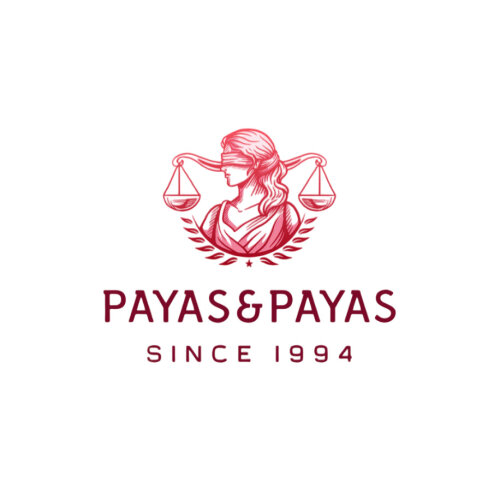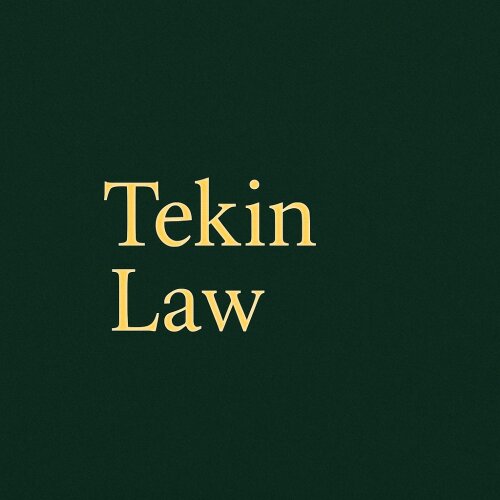Best Adoption Lawyers in Turkey
Share your needs with us, get contacted by law firms.
Free. Takes 2 min.
Free Guide to Hiring a Family Lawyer
Or refine your search by selecting a city:
List of the best lawyers in Turkey
Legal guides written by Tekin Law Firm:
- Arbitration in Turkey
About Adoption Law in Turkey
Adoption in Turkey is a legal process that establishes a parent-child relationship between individuals who are not biologically related. Under Turkish law, adoption is governed by the Turkish Civil Code and overseen by authorized family courts. The primary goal of adoption is to provide children with a nurturing and supportive family environment. Both Turkish citizens and foreigners residing in Turkey may adopt, but there are specific eligibility criteria and procedures that must be followed. The process is comprehensive, ensuring the child's welfare is central to any decision made.
Why You May Need a Lawyer
Legal advice may be necessary in various adoption-related situations, including:
- Understanding Eligibility: Prospective adoptive parents may need help determining if they meet the legal criteria for adoption.
- Paperwork and Documentation: The adoption process involves extensive documentation, and a lawyer can ensure all legal paperwork is correctly completed and filed.
- Navigating Legal Procedures: Adoption involves court appearances and legal processes where a lawyer's guidance may be invaluable.
- Addressing Delays or Disputes: If there are any challenges or disputes within the adoption process, legal counsel can help resolve them efficiently.
- Cross-Border Adoption: International adoption presents unique challenges that require legal expertise to navigate both Turkish and international laws.
Local Laws Overview
The key aspects of adoption laws in Turkey include:
- Eligibility: Adoptive parents must be at least 30 years old, and a minimum of 18 years older than the child, though courts may offer flexibility in the presence of exceptional circumstances.
- Consent: The consent of the biological parents is required, except in cases where they are not known, have abandoned the child, or are deemed unfit by a court.
- Child's Welfare: The child's best interest is always the priority, and courts will consider this in any adoption decisions.
- Approval and Oversight: Family courts are responsible for the approval and oversight of adoption processes.
- Residency Requirements: Adoptive parents generally must have resided in Turkey for a minimum of two years before applying for adoption.
Frequently Asked Questions
What are the basic requirements for adopting a child in Turkey?
Prospective parents must be at least 30 years old and typically at least 18 years older than the child. They should also have resided in Turkey for at least two years.
Can single individuals adopt a child in Turkey?
Yes, single individuals are eligible to adopt in Turkey, provided they meet other legal requirements.
Is international adoption possible in Turkey?
Yes, international adoption is possible, but it involves complying with both Turkish regulations and international adoption treaties.
How long does the adoption process take in Turkey?
The adoption process duration can vary widely, from several months to a few years, based on the situation and any legal complexities involved.
What role does the family court play in the adoption process?
Family courts in Turkey oversee the adoption process, ensuring compliance with legal requirements and that all actions serve the child's best interests.
Do adopted children have the same rights as biological children in Turkey?
Yes, once an adoption is finalized, the adopted child has the same legal rights as a biological child in matters of inheritance, parental obligations, and legal recognition.
Is it necessary to hire a lawyer for the adoption process?
While not legally required, hiring a lawyer can be beneficial in navigating the legal complexities and ensuring that all paperwork is correctly handled.
Can relatives adopt children in Turkey?
Yes, relatives can adopt children in Turkey under simplified procedures designed to prioritize the child’s continued relationship with family members.
What happens if there’s a dispute during the adoption process?
If a dispute arises, it may be resolved in the family courts where all parties can present their case, and a judge will make a determination based on the child's best interests.
Are adoption processes in Turkey different for foreigners?
Foreigners can adopt in Turkey but will be subject to additional checks, and they must comply with their home country's adoption laws as well as Turkish regulations.
Additional Resources
Those considering adoption in Turkey can access several resources, such as:
- Ministry of Family and Social Services: This governmental body oversees adoption and provides guidance on procedures and requirements.
- Family Courts: Judicial institutions responsible for handling adoption cases and legal disputes.
- Local Adoption Agencies: These agencies can provide support and assistance throughout the process.
- Non-Governmental Organizations (NGOs): Organizations that focus on child welfare can offer additional information and support.
Next Steps
If you need legal assistance with adoption in Turkey, consider the following steps:
- Research: Start by gaining basic knowledge of the adoption process, requirements, and legal expectations in Turkey.
- Consult with Professionals: Schedule an initial consultation with a lawyer specializing in family or adoption law to understand your legal position.
- Gather Documentation: Compile all necessary paperwork, including personal identification, residence documents, and any relevant legal certificates.
- Engage with Authorities: Contact government bodies or registered adoption agencies to begin official processes.
- Seek Support: Join support groups or networks of adoptive parents to share experiences and gain insights.
Lawzana helps you find the best lawyers and law firms in Turkey through a curated and pre-screened list of qualified legal professionals. Our platform offers rankings and detailed profiles of attorneys and law firms, allowing you to compare based on practice areas, including Adoption, experience, and client feedback.
Each profile includes a description of the firm's areas of practice, client reviews, team members and partners, year of establishment, spoken languages, office locations, contact information, social media presence, and any published articles or resources. Most firms on our platform speak English and are experienced in both local and international legal matters.
Get a quote from top-rated law firms in Turkey — quickly, securely, and without unnecessary hassle.
Disclaimer:
The information provided on this page is for general informational purposes only and does not constitute legal advice. While we strive to ensure the accuracy and relevance of the content, legal information may change over time, and interpretations of the law can vary. You should always consult with a qualified legal professional for advice specific to your situation.
We disclaim all liability for actions taken or not taken based on the content of this page. If you believe any information is incorrect or outdated, please contact us, and we will review and update it where appropriate.
Browse adoption law firms by city in Turkey
Refine your search by selecting a city.

















